Filter by
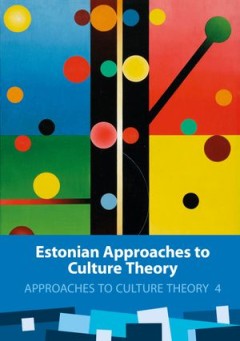
Estonian Approaches to Culture Theory
The fourth volume in the Approaches to Culture Theory series is a contemporary Estonian anthology in culture theory. Most of the authors are members of the research groups of the Centre of Excellence in Cultural Theory: archaeology, cultural communication studies, contemporary cultural studies, ethnology, folkloristics, religious studies, landscape studies, and semiotics. These scholars have re…
- Edition
- -
- ISBN/ISSN
- 9789949326136
- Collation
- 335 halaman
- Series Title
- Approaches to Culture Theory Series, #4
- Call Number
- 306 EST
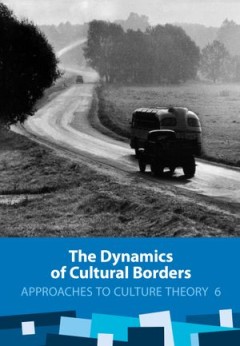
The Dynamics of Cultural Borders
This volume encompasses a broad span of issues related to borders as areas of intense activity substantially contributing to the dynamics of culture. The chapters address questions relating to the construction and reconstruction of borders, as well as the experience and representation of physical, spiritual, imagined and symbolic borders. The authors provide perspectives on emerging and dissolv…
- Edition
- -
- ISBN/ISSN
- 9789949770823
- Collation
- 260 halaman
- Series Title
- Approaches to Culture Theory, 6
- Call Number
- 800 KAN d
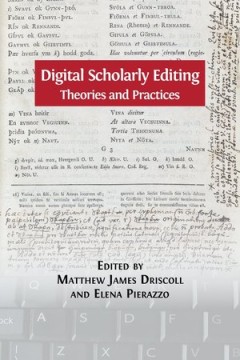
Digital Scholarly Editing : Theories and Practices
This volume presents the state of the art in digital scholarly editing. Drawing together the work of established and emerging researchers, it gives pause at a crucial moment in the history of technology in order to offer a sustained reflection on the practices involved in producing, editing and reading digital scholarly editions—and the theories that underpin them.
- Edition
- -
- ISBN/ISSN
- 9781783742400
- Collation
- 290 halaman
- Series Title
- Digital Humanities Series
- Call Number
- 370 DRI d
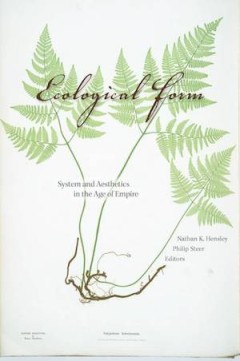
Ecological Form : System and Aesthetics in the Age of Empire
Hensley and Steer look to join the conceptual tools of contemporary ecocriticism with the rich archive of nineteenth century thinking about imperial and ecological intertwinement. This collection of essays draws on that archive to demonstrate the relevance of Victorian thought for current theory and practice. Ecological Form argues that ecology, the empire, and literary thinking were inseparabl…
- Edition
- -
- ISBN/ISSN
- 9780823282128
- Collation
- -
- Series Title
- -
- Call Number
- 800 HEN e
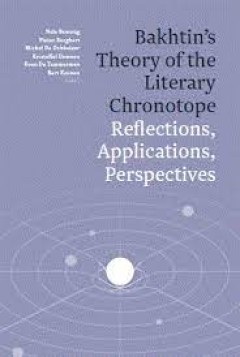
Bakhtin’s Theory of the Literary Chronotope : Reflections, Applications, Pe…
This edited volume is the first scholarly tome exclusively dedicated to Mikhail Bakhtin’s theory of the literary chronotope. This concept, initially developed in the 1930s and used as a frame of reference throughout Bakhtin’s own writings, has been highly influential in literary studies. After an extensive introduction that serves as a ‘state of the art’, the volume is divided into four…
- Edition
- -
- ISBN/ISSN
- 9789038215631
- Collation
- 213
- Series Title
- -
- Call Number
- 800 BEM b
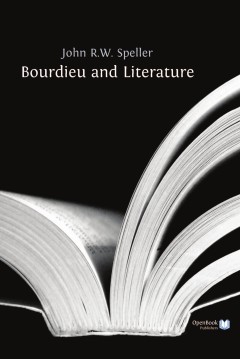
Bourdieu and Literature
One of the foremost French intellectuals of the post-war era, Bourdieu has become a standard point of reference in the fields of anthropology, linguistics, art history, cultural studies, politics, and sociology, but his longstanding interest in literature has often been overlooked. This study explores the impact of literature on Bourdieu's intellectual itinerary, and how his literary understand…
- Edition
- -
- ISBN/ISSN
- 9781906924447
- Collation
- 203 halaman
- Series Title
- -
- Call Number
- 800 SPE b
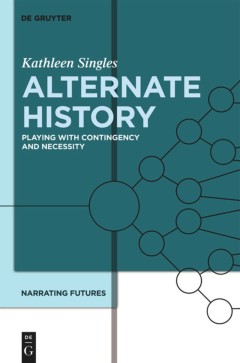
Alternate History : Playing With Contingency and Necessity
While, strictly speaking, Alternate Histories are not Future Narratives, their analysis can shed a clear light on why Future Narratives are so different from past narratives. Trying to have it both ways, most Alternate Histories subscribe to a conflicting set of beliefs concerning determinism and freedom of choice, contingency and necessity. For the very first time, Alternate Histories are here…
- Edition
- -
- ISBN/ISSN
- 9783110272475
- Collation
- -
- Series Title
- -
- Call Number
- 302.2 SIN a
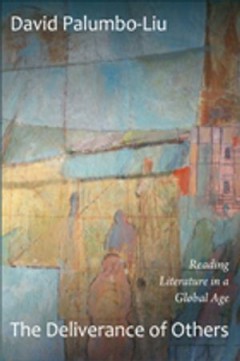
The Deliverance of Others : Reading Literature in a Global Age
The Deliverance of Others is a compelling reappraisal of the idea that narrative literature can expand readers' empathy. What happens if, amid the voluminous influx of otherness facilitated by globalization, we continue the tradition of valorizing literature for bringing the lives of others to us, admitting them into our world and valuing the difference that they introduce into our lives? In th…
- Edition
- -
- ISBN/ISSN
- 9780822352501
- Collation
- 240 halaman
- Series Title
- -
- Call Number
- 800 PAL d
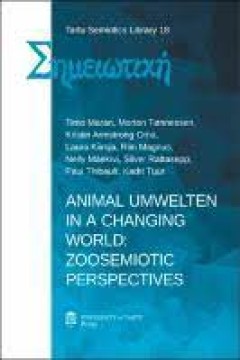
Animal Umwelten in a Changing World : Zoosemiotic Perspectives
The book raises semiotic questions of human–animal relations: what is the semiotic character of different species, how humans endow animals with meaning, and how animal sign exchange and communication has coped with environmental change. The book takes a zoosemiotic approach and considers different species as being integrated with the environment via their specific umwelt or subjective percep…
- Edition
- -
- ISBN/ISSN
- 9789949772810
- Collation
- 276 halaman
- Series Title
- -
- Call Number
- 400 MAR a
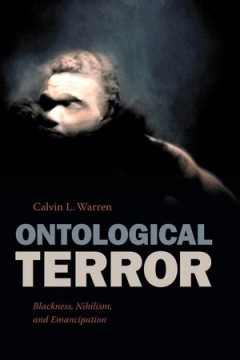
Ontological Terror Blackness, Nihilism and Emancipation
In Ontological Terror Calvin L. Warren intervenes in Afro-pessimism, Heideggerian metaphysics, and black humanist philosophy by positing that the "Negro question" is intimately imbricated with questions of Being. Warren uses the figure of the antebellum free black as a philosophical paradigm for thinking through the tensions between blackness and Being. He illustrates how blacks embody a metaph…
- Edition
- -
- ISBN/ISSN
- 9780822370727
- Collation
- -
- Series Title
- -
- Call Number
- -
 Computer Science, Information & General Works
Computer Science, Information & General Works  Philosophy & Psychology
Philosophy & Psychology  Religion
Religion  Social Sciences
Social Sciences  Language
Language  Pure Science
Pure Science  Applied Sciences
Applied Sciences  Art & Recreation
Art & Recreation  Literature
Literature  History & Geography
History & Geography